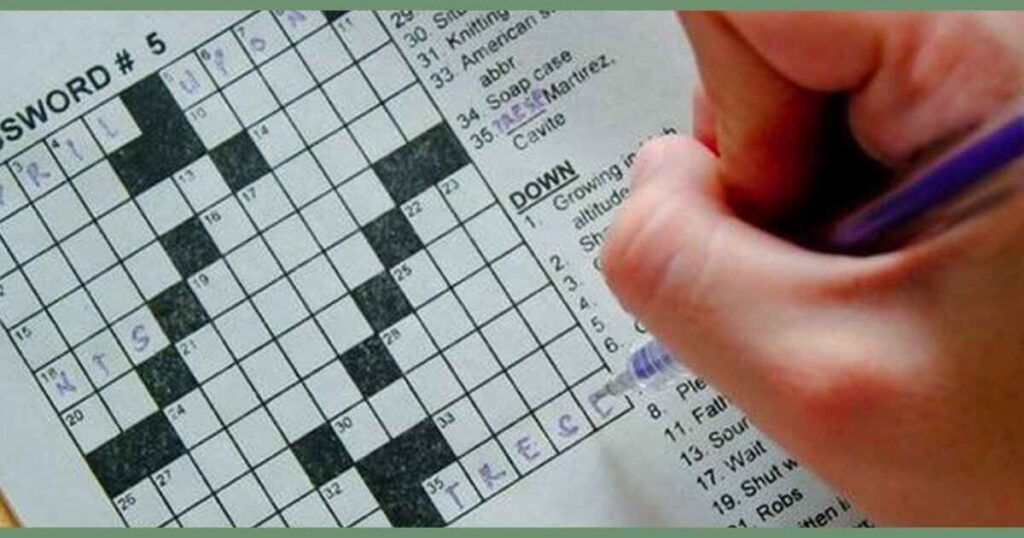From Louisville, Kentucky to Jacksonville, Florida, this suffix has a fascinating story to tell. It’s not just a quirky ending – it’s a window into our nation’s historical and cultural past.
And if you’re a crossword fan, you’ve probably encountered these names more times than you can count! Let’s move into the world of “-ville” and uncover how it connects to figures like Louis and Jackson.
We’ll explore its French origins, its spread across the USA, and why it’s such a popular choice for puzzle makers. By the end, you’ll have a whole new appreciation for these city names and maybe even some tricks up your sleeve for your next crossword challenge!
The Appeal of City Names
City names are like little time capsules. They carry the weight of history, the flavor of culture, and sometimes even a hint of the local geography. Take Louisville, for example. Just hearing the name, you might guess it’s got something to do with someone named Louis – and you’d be right.
These names aren’t just random collections of letters; they’re stories waiting to be told. But why do we find city names so fascinating? Maybe it’s because they give us a sense of place, a connection to the past. Or perhaps it’s the mystery they hold – the stories behind how they came to be.
For crossword enthusiasts, these names are gold mines of information, perfect for challenging clues and satisfying solves. Understanding the patterns and histories behind city names can make you feel like a detective, uncovering clues about the past with each new name you learn.
What is “Ville”?
The suffix “-ville” isn’t just a random ending tacked onto city names. It comes from the Latin word “villa,” meaning a country house or farm. Over time, it evolved in French to mean “town” or “city.” So when you see a place name ending in “-ville,” you’re literally looking at a piece of language history that means “town of” or “city of.”
Why “Ville” is Ordinary in City Names
You might be wondering why “-ville” is so common in American city names. Well, it’s all thanks to French colonization! When French settlers came to North America, they brought their language with them. The “-ville” suffix became a popular way to name new settlements, often honoring important figures or describing the area.
The Genuine Impact of the French
The French influence on American place names goes beyond just the “-ville” suffix. French culture left an indelible mark on the landscape of North America. From the bayous of Louisiana to the streets of Quebec, French language and naming conventions spread far and wide, shaping the way we identify places even today.
Louisville, Kentucky
Louisville, Kentucky is a prime example of the “-ville” naming convention in action. Named after King Louis XVI of France, this city showcases how American figures and French culture intertwined in the early days of the nation. Louisville’s name is a testament to the complex relationships between the fledgling United States and European powers of the time.
Jacksonville, Florida
Moving south, we find Jacksonville, Florida, another city sporting the famous “-ville” ending. But this time, the name honors an American figure – Andrew Jackson, the seventh President of the United States. It’s a perfect example of how the French-derived suffix was adopted into American culture and used to commemorate local heroes.
Other Focal “Ville” Metropolitan social class

Louisville and Jacksonville aren’t the only stars of the “-ville” show. Across the United States, you’ll find a constellation of cities proudly wearing this suffix. Nashville, Tennessee, for instance, brings music to our ears not just with its tunes but with its name.
Then there’s Greenville, South Carolina, painting a picture of lush landscapes with its moniker. These names aren’t just random choices. Each tells a story of its founding, its hopes, or its surroundings.
Knoxville, Tennessee, named after Henry Knox, reminds us of the important figures in American history who shaped our nation. As you travel across the country, keep an ear out for these “-ville” names – each one is a little lesson in local history and national heritage.
Read More: Wildskirts: The Ultimate Fashion Statement
The Ensuring of “Ville” in Crosswords
For crossword fans, “-ville” is like an old friend – familiar, reliable, and always popping up when you least expect it. Puzzle creators love using these city names because they’re widely known but still offer a bit of a challenge.
The “-ville” suffix is a crossword staple, appearing in clues that test your knowledge of geography, history, and even pop culture. Why are these names so puzzle-friendly? Well, they’re short enough to fit in those tricky crossword grids but specific enough to make you think.
Plus, with so many “-ville” cities out there, puzzle makers have a wealth of options to choose from. Whether it’s a clue about Louisville’s famous derby or Jacksonville’s NFL team, these names provide a perfect blend of accessibility and challenge.
Ways to deal with administering settling Crossword Signs with “Ville”

Cracking “-ville” clues in crosswords doesn’t have to be a headache. Here’s a pro tip: when you see a clue hinting at a city name, and you’ve got a few letters ending in “-ville,” start thinking about American history and geography. Is the clue mentioning a French connection?
Consider Louisville. Talking about a Southern city? Jacksonville might be your answer. Remember, context is key. Puzzle makers often include hints about the city’s claim to fame or its location.
So brush up on your U.S. geography and keep an eye out for references to historical figures or events. And don’t forget – sometimes the answer might be a less famous “-ville” city, so having a mental list of these places can give you an edge.
Typical Models in City Names
City names follow patterns, and understanding these can be a game-changer for crossword solving. Beyond “-ville,” you’ll find other common endings like “-burg” (think Pittsburgh) or “-ton” (like Boston). These suffixes often have their own meanings and histories. “-Burg,” for instance, comes from the German word for “fortress,” while “-ton” is derived from “town.”
The Control of Edifying records in Really focusing on Crosswords
In today’s digital age, crossword fans have a secret weapon: online databases and resources. These tools have revolutionized the way we approach puzzles. Websites like Crossword Solver or OneLook can be lifesavers when you’re stuck on a tricky “-ville” clue.
They allow you to input the letters you know and find possible matches, often providing additional information about the cities. But it’s not just about finding answers. These resources can be educational tools in their own right.
As you use them, you’ll start to notice patterns in city names, learn about new places, and pick up interesting historical tidbits. It’s like having a geography lesson and a crossword tutorial rolled into one.
Drawing in with the Deals Social class
The crossword community is a vibrant and welcoming bunch. Joining online forums or social media groups dedicated to puzzle-solving can enhance your skills and make the hobby even more enjoyable. You’ll find fellow enthusiasts sharing tips, discussing tricky clues, and sometimes even creating their own puzzles.
The Informational Worth of Crosswords
Crosswords aren’t just fun – they’re brain food! Solving puzzles that include city names like Louisville or Jacksonville can improve your geography knowledge, boost your vocabulary, and sharpen your problem-solving skills. It’s a sneaky way to learn about American history, cultural influences, and even bits of French language without feeling like you’re studying.
Read More: Isotonix Lawsuit : A Legal Battle With Allegations and FDA Warning
At the End
As we’ve uncovered, the “-ville” suffix is more than just a common ending for city names. It’s a linguistic thread that ties together American history, French colonization, and the quirky world of crossword puzzles.
From Louisville’s connection to French royalty to Jacksonville’s homage to an American president, these names offer glimpses into the rich tapestry of our nation’s past. Next time you encounter a “-ville” city in a crossword or on a map, take a moment to appreciate the story behind the name.
Why not challenge yourself to learn about a new “-ville” city? You never know when that knowledge might come in handy – whether you’re solving a puzzle or just impressing friends with your geographical know-how. Remember, every city name is a doorway to discovery. So go ahead, open that door and see where it leads you.

